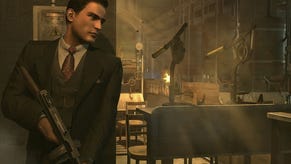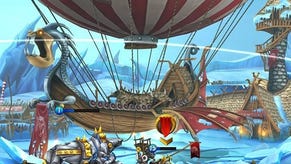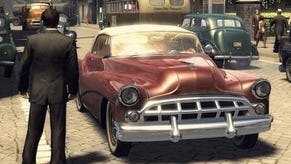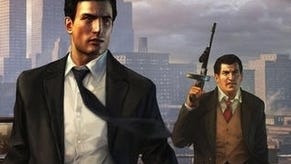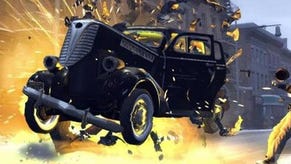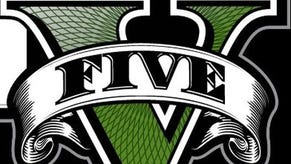Mafia II
When I'm Cleaning Windows.
Remember Mafia? It was an open-world game set in the 1930s that let you buzz around in ancient cars, shoot serious men in hats, and its developers thought it was the best movie Martin Scorsese never made. Well, it's coming back: released later this year, Mafia II will let you buzz around in moderately less ancient cars, shoot yet more serious men in hats, and its developer presumably thinks it's the second best movie Martin Scorsese never made. That Martin Scorsese, eh? He should stop not making his best movies and make games instead. That would give the Mafia team something to stick in their pipes.
Released on the PC in 2002, Mafia: The City of Lost Heaven was a fairly original take on sandbox gaming. At a time when most other open-world titles were happy to give you a jetpack and funny trousers and let you roar about the place causing chaos, Illusion Softworks (which has since become 2K Czech and is developing the sequel) took itself more seriously, offering up a gritty, rather unpleasant take on the world of organised crime, leaning heavily on the "painful consequences" end of the spectrum and rarely, if ever, offering you funny trousers. (You can read more about it in our Mafia Retrospective.)
Today, of course, the big daddy of free-roamers has grown equally serious itself, so Mafia's USP has been slightly diminished. And then there's the Godfather series, which plays up the whole historical angle Mafia had made its own, even finding time in its latest instalment to throw in a few strategic gimmicks, albeit only to middling effect. It's a classic mobster conundrum, then: with so many other kids muscling in on Mafia's turf, has Mafia II got what it takes to fend them off?
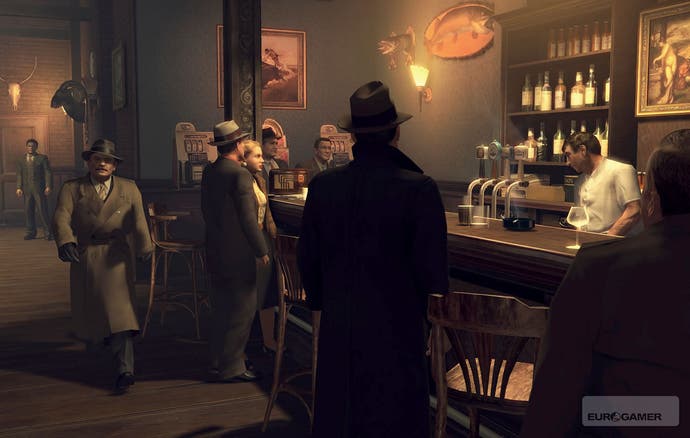
At least the porting won't be a problem. Mafia's PS2 and Xbox versions were afterthoughts and played like it. Sitting down in 2K's Windsor offices to watch a developer barrel through a little of the sequel, it's already running on 360, with PS3 and PC iterations being developed concurrently. Covering the Wii options, I'd stay tuned for Mafia Kart (I spent half the trip back honing that joke), where you team up with Birdo and Dennis Farina.
Mafia II will retain the original's balance of driving versus shooting, and narrative versus sandbox missions. The difference this time is that apparently the sandbox has been considerably embellished, although in our brief demo nobody got to see very much of that. What we did see was that the setting's changed. Lost Heaven has been replaced with Empire Bay, an East Coast megacity heavily influenced by New York. Meanwhile, the clock has rolled forward to the forties and fifties, bringing on the predictable slew of improved cars, shinier weapons, and a preponderance of oppressively permed dames sashaying down the streets. There's a new story, too, with lead character Vito Scaletti home from the war and itching to get into crime.
Empire Bay's a suitably swaggering slice of fifties America on the day we visit: it's a breezy afternoon in summer, and the fading sun is casting a golden glow over wide avenues and elegantly-trimmed skyscrapers, while an elevated train rumbles overhead. The city covers ten square miles, which makes it twice the size of Lost Heaven, and encompasses twenty different districts taking in slums, a mid-town, and white picket fences.
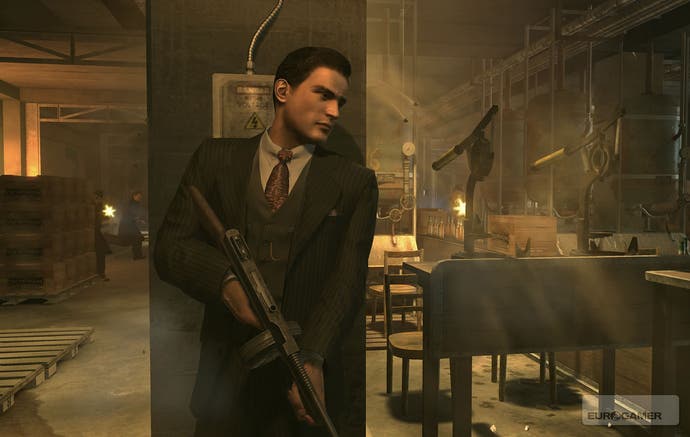
The developer is showing us a condensed version of Room Service, a mission occurring about half way through the game. It's an elaborate hit: a rival family is having a conference in a nearby hotel, and we're meant to take out the don. Our first step is to get there, so we meet up with a getaway driver, the rookie mobster Marty, young and terribly eager, and so clearly branded with "probably going to die very soon" that he may as well be wearing a Star Trek Away Team uniform.
It's immediately clear that where Mafia II excels is in the details. We're given a simple enough task, but the delivery is polished, exuding an appreciation of the game's historical and geographical setting that's even more admirable when you realise it's being developed in the Czech Republic, and not in the 1950s. The arm-swinging walking animations and sharp suits of the game's characters could have been plucked from a dozen different Rock Hudson films, and everywhere you look, the environment shows a high degree of TLC, from the fingerprints on the wing mirrors of cars, to the cigarette butts scattered on the floor around a tenement doorway.


